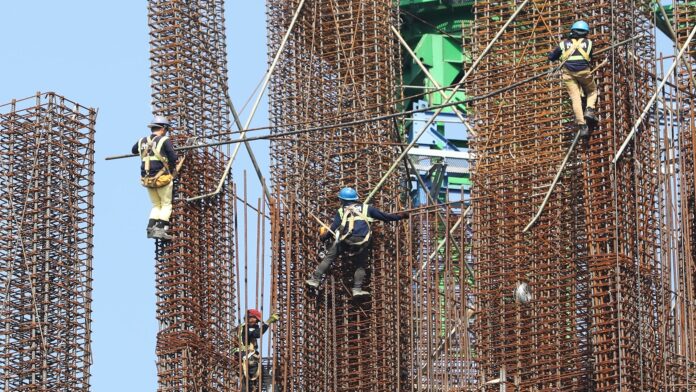A lawmaker on Tuesday said an environment-friendly measure that seeks to replace the 46-year-old Building Code will make the country’s structures more resilient against natural calamities and disasters.
Camarines Sur Rep. Luis Raymund Villafuerte Jr. said the climate-proofing plan under House Bill 8500 or the proposed New Philippine Building Act would still preserve the power of local government units to issue statutes or regulations relating to buildings in their respective localities as long as these are consistent with the proposed new building law.
“Climate change and the increasing frequency and intensity of natural disasters that hit the country make it necessary for us lawmakers to update our building and construction laws. Improvements in building regulations and standards are necessary to help us respond to our vulnerabilities to such disasters as earthquakes, typhoons and volcanic eruptions, given that the Philippines is situated along the Pacific ‘Ring of Fire’,” Villafuerte said.
The bill aims to create the Office of the National Building Officer (NBO), which is tasked to ensure that the buildings or structures are stronger or more tenacious in the face of earthquakes, storms, floods, fires, landslides and other natural hazards of increasing frequency and intensity.
He said one requirement of the proposed new building code under HB 8500 is for all buildings and structures to be designed to “minimize their negative environmental impact throughout their life cycle, through efficient energy, water and waste management methods, use of sustainable materials and landscaping that considers a site’s biodiversity and existing natural features, and climate change mitigating features, among other measures.”
Another requirement, he said, is the strict use of building materials and components that are safe for the health of occupants.
He said the building materials must not cause any substantive negative impact on the environment including air, water and soil, and follow “a set of criteria, including strength, fire resistivity, moisture resistance, durability, and sustainability”.
The bill shall authorize the NBO to recommend funding support for LGUs and communities that have endorsed disaster risk reduction and management activities for buildings and structures.
In August, a total of 266 lawmakers voted to approve HB 8500, which contains the country’s proposed new National Building Code or law. No lawmaker voted against the bill or abstained from voting. (PNA)


